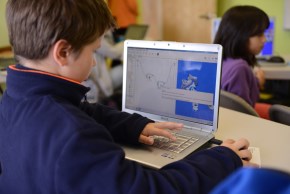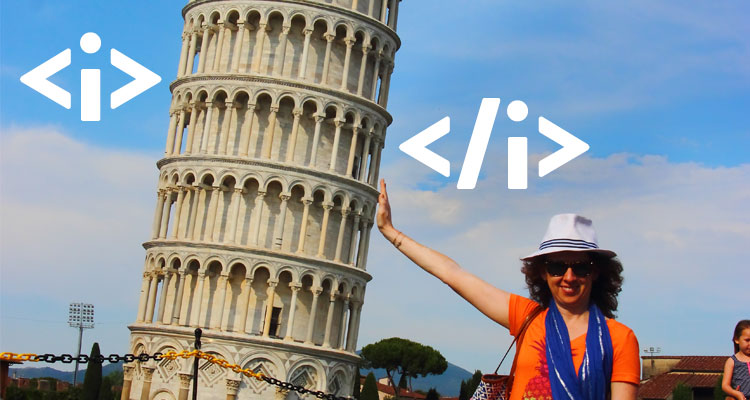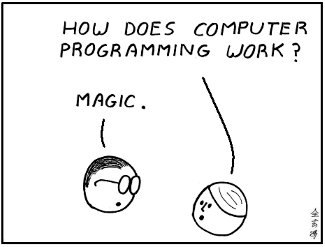When I was in high school, my dad urged me several times to go to college, major in computer science, and become a programmer. This was the late 1990s. By that point, the internet was becoming widely adopted and the dot-com boom was in full force. “Computer programming is the career path of the future” he’d say.
To a certain extent, he was right. But it just wasn’t something that interested me. I ended up choosing a different path that I have been very happy with.
 Why Coding Matters Now, and Will Matter More
Why Coding Matters Now, and Will Matter More
Now, in 2014, the world is changing more quickly. Since I graduated high school, I’ve seen numerous articles declaring that all kids should learn to code, that the jobs of the future will demand it.
It may very well turn out that those who know how to code are more employable, flexible workers. Surely, there are numerous benefits to the development of coding skills.
In fact, many students say they want to learn to code. While there are many reasons that students may want to learn to code, the biggest driver appears to be that around 60% believe coding will be a competitive advantage when trying to land a job later in life.

I posed this question to a few computer science professionals. They agreed that learning to code can benefit most students.
“Learning to code teaches students to think logically”, says Jane Sparkman, business and technology content specialist for K12, Inc. She adds, “thinking logically allows students to tackle large problems and break them down into smaller segments. Students can then focus on finding the individual solutions, rather than being overwhelmed by the entire problem.”
She continues, “Learning to code is much more than learning about technology. Learning code enhances students’ problem solving and thinking skills.”
While it is difficult to determine whether all kids, or how many, should learn to code in preparation for their future, it’s good to know that there are many valuable resources available online. Below we share a small sampling of how to get started, but a quick Google search can provide many more.
How Kids Can Learn to Code
While many schools offer teacher-led courses in computer science, many don’t have the staff or funding to support this path. Fortunately for students who are interested in learning to code, there are many great and often free resources available online.
Each of the resources below allow students to start at the very beginning with an introduction to programming. From there, students are able to explore more in-depth concepts through progressive lessons.
Codecademy
A very popular program for anyone who wants to learn coding from the ground up, Codecademy offers free courses in a variety of programming languages including HTML & CSS, Javascript, jQuery, Python, Ruby, and PHP. Whether you’re interested in learning to create web sites or have ambitions to create an iPhone app, Codecademy can get you started.
The lessons are designed to start from the very beginning and work up to advanced concepts. Because Codecademy is self-paced, you can learn wherever and whenever it is convenient for you.
[embedvideo id=”fjQ7XaMNQNc?rel=0″ website=”youtube”]
Code.org
A leading organization in the “learn to code” movement, code.org offers a variety of lessons starting at “early elementary” levels. Using creative artwork from popular titles like Flappy Bird, Plants vs. Zombies, and Angry Birds, students are introduced to basic concepts and visual editors where code is essentially hidden to begin with, and revealed as the material progresses. The site has both tutorials and 20-hour courses in different areas of the site, thought it’s not quite clear how or why the content is broken up in this way.
Hour of Code
Hour of Code, brought to you by Code.org, is a movement designed to introduce those unfamiliar with coding to the concept in only one hour. The goal of “Hour of Code” is to show even those with no coding background can learn the very basics of computer programming. Local events happen in countries around the world, and anyone can host or join one of these events.
While the “official” hour of code will occur this December, you can participate any time by visiting http://hourofcode.com/us and searching for events in your area.
Khan Academy
We’re all familiar with the Khan Academy that teaches math and science, but Sal Khan’s vision extends far beyond the traditional subjects. A channel designed specifically for computer science lessons is one of the latest offerings from Khan Academy, and while Khan Academy lacks some of the interactive feedback offered by other resources on this list, the channel would be a great help to help students reinforce concepts as they learn to code.
Treehouse
While not free, Treehouse offers students quality courses in web design and app development, covering languages including HTML, CSS, Javascript, Ruby, PHP, Python, and more. Students earn badges as they progress, showing which skills they have developed to the community.
MIT OpenCourseWare
MIT has famously decided to offer its undergraduate and graduate level courses online, mostly for free. Many students might be interested in learning to code with an MIT-quality education via independent study.
Code School
While not free, Code School is a very affordable program ($29/month) that offers a variety of courses and several free screencasts that students can use to develop coding skills. With paths for students interested in websites, web apps, iPhone apps, and more, Code School has something for most everyone who wants to learn.
Image Credit Justin Ennis / CC by 2.0

 Why Coding Matters Now, and Will Matter More
Why Coding Matters Now, and Will Matter More



































